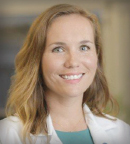Perhaps the best known of all cancer predisposition genes are inherited mutations in the genes BRCA1 and BRCA2. They were originally associated with an increased risk of breast and ovarian cancers. Later studies revealed that they also increased the risk of prostate and pancreatic cancers and, in some cases, melanoma.
The Memorial Sloan Kettering Cancer Center (MSK) has a program called RISE (Risk Assessment, Imaging, Surveillance, and Education) to regularly screen those at higher risk of breast cancer, including those with BRCA mutations. However, for men with a BRCA diagnosis, the best steps to prevent cancer have been less clear until now.

Robert Sidlow, MD
MSK internist Robert Sidlow, MD, discovered this problem firsthand when a close family member and his best friend both learned they had inherited BRCA mutations and came to him for advice. “I discovered there were no systematic programs out there to help men who have received this diagnosis, and there is a tremendous need for care coordination in this changing area,” he explained. “I said to myself, ‘I’ve got two people who are very close to me who are affected by this. Maybe I should do something about it.’”
Providing Cancer Screenings for Men With BRCA1 and BRCA2
After speaking with colleagues in the RISE program and in MSK’s Clinical Genetics Service (CGS), Dr. Sidlow decided to establish a program that would provide a “one-stop shop” for highly personalized cancer screening and surveillance for men with inherited BRCA mutations.

Alicia Latham, MD

Kenneth Offit, MD
After completing a certification course in genomic cancer risk assessment, he worked with Alicia Latham, MD, Head of MSK’s Comprehensive Assessment, Treatment, and Prevention of Cancers with Hereditary Predispositions (CATCH) program, to establish standards of care for this unique MSK patient population. He also consulted with Kenneth Offit, MD, Chief of MSK’s CGS, whose lab discovered the most common BRCA2 mutations in 1996.
“I try to help each patient weigh the risks and benefits of each potential screening modality, and we share these decisions together,” Dr. Sidlow said.

